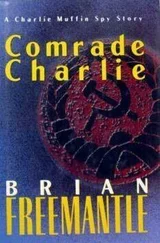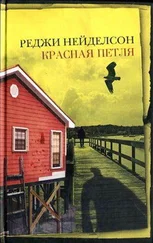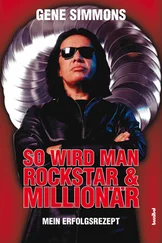In 1958, Dean Reed went to Hollywood. Somehow, during that long day on the north shore of Oahu, Mrs. Brown summoned up the energy to tell one more story and, as she told it, she was recharged because this was a good story, an exciting story, a family legend about how her boy sought fame and fortune on the road to Hollywood.
In her hand was a blurred black-and-white snapshot. Dean Reed smiled up out of it. He was twenty and almost unbearably hopeful and handsome. In a white Chevrolet Impala convertible, big as a boat, he had a big stiff crew-cut and he wore a skinny tie. It was taken the year he left home for California.
His father was not happy about it. Dean had been studying to be a meteorologist and then he just picked up and went West, and his dad, Cyril, was mad because he wasn't at all crazy about this "singing stuff." Dean had planned on becoming a TV weatherman after he finished college. But at the end of summer after his sophomore year and, instead of heading back to school, Dean went West.
What the heck, he probably said to himself. He was pretty good with the guitar. He had racked up a few successes playing Estes Park, a resort town up in the Colorado Rockies. Dean wanted a look at the big time.
Driving down the endless desert highway, he was having a ball, maybe singing or listening to the radio or day-dreaming. Anything was possible. Then Dean saw a guy by the roadside thumbing a lift.
The guy - the bum, as Mrs. Brown called him - at the roadside looked forlorn and miserable. Dean, always up for a good deed, pulled over. According to his mother, the incident might have played like this:
"Hop in," Dean said. .
"Where are you going?" the bum asked.
"Hollywood," replied Dean.
Clocking the guitar in the front seat, the bum knew a good thing when he saw one.
He said, "I'll tell you what. You pay for a night at a motel, maybe give me a spare pair of pants, and I'll give you a name of someone in the music business."
Skeptical, Dean laughed. But he was a good kid with a good heart, and he thought, what the heck.
Dusk fell over the desert. The neon came on outside the motels. Dean agreed to pay for the bum's room. He gave him a pair of pants, too, although it was his only spare pair, according to his mother.
Mrs. Brown went on. "And this fellow said to stop by and see Capitol Records, and he gave Dean the name of a person to see. And Dean did. And what do you know? He was for real. Dean got a recording contract." Ruth Anna Brown beamed.
In Hollywood, the Capitol Records building was pretty easy to find because it was built in the shape of a stack of records.
Inside, sweet-talking the receptionist, Dean evetually got in to see Mr. Voyle Gilmore, who turned out to be the genuine article. The bum on the road was, in fact, a musician and a pal of Gilmore's from the old days. Gilmore was also a top producer for, among others, Frank Sinatra.
Dean got a try-out. Next thing you knew, he was on the phone back to his mom telling her to come on out and sign him to a seven-year contract with Capitol. He wasn't twenty-one yet and his mother had to sign....
"Come on out to California, Mom," he said, shouting because he was on long distance, which was still a novelty, used only for death and celebration.
It was 1958. He was twenty. He had a great smile. He could shake his hips and girls thought he was very sexy.
Dean's dad was mad as hell that Dean had quit his education and gone to Hollywood. Dean didn't care. He was on the move now, recording songs, appearing on TV. Now, on Ruth Anna Brown's television set, I watched a clip from an old program. In it, a girl bobbed on to the stage, her pony-tail bouncing.
"How about everyone coming over to my house. I've got the new Dean Reed album and it's areal gasser," she said.
The girl on the screen had the knowing look of a TV pro, even at fifteen. She wore a party dress with a big skirt and she had the calculated innocence of the 1950s.
"But here he is himself in person. It's Dean Reed!"
Bright as a button, he bounced up to the mike in that loose-jointed way that was considered slick, snapping his fingers, dancing, jumping. He wore a white sports coat and he had all the moves. He was quite polished; he knew his stuff. He was accompanied by a group of similarly hip boys, snapping their fingers.
"I went to a football game and I never will forget that pretty little, pretty little, pretty little majorette," he sang as he smiled his million watt smile. The boys joined in the refrain: "Twirly Twirly," they sang. "Twirly Twirly."
Then a couple of plump majorettes in little white booties came on and pranced around, tossing their batons, eyeing Dean Reed.
"Twirly Twirly," Dean sang again.
Leslie and I looked at each other; I could see that, like me, he could barely sit still he was so excited, that he wanted to say, as he did after we left, "This is it! This is the key. This is the root of the story, the beginning of the Dean Reed we've been looking for. He was on his way to being an early American idol and, if he'd stuck it out, he could have been, well, Fabian."
"Dean's life, it was just like a movie," Mrs. Brown said, as she reached over to shut off the TV.
For a minute I was silent. Mrs. Brown was clearly ready for us to go. I wasn't going.
Finally, I said, "So who do you really think killed him? How did your son die?"
"Well, I went to see one of their policemen over in East Germany, you can just imagine." Mrs. Brown was not as reticent as I had expected. "My goodness, he was a pompous man. I asked who he thought did it and he looked at me as if I were just plain crazy. I'll never forget it. He said to me, 'There are three things to consider. First, crime. Second, suicide. Third, accident.'" She hesitated. "Then he said, 'One. We do not have crime in the GDR. Two. We know Dean well and he would never have committed suicide. Three, therefore, it was an accident.'
"So tell me this," Mrs. Brown continued. "If it was an accident, why was Dean pinned under the pilings of the pier in the lake? Why were his arms stretched out so that he was pinned in a Christ-like position? Why was he wearing two jackets in the middle of summer? Why?"
Notions poured from her like hope: that Dean got into trouble because he knew something about Chernobyl - he had been due to start filming that summer in Yalta, which was not far away; that he was dissatisfied with the system - she had a letter from him as far back as 1985 saying so; that he knew things about Oliver North and the Contras. He was intending to call a press conference for the Saturday he died, he said.
"There was always an agent assigned to Dean to do a 'wet job', in case he got out of line, " she said.
"A wet job?"
The scenarios of his death, as Mrs. Brown called them, came on faster and faster. She could handle something dramatic, brave, important, a death that had meaning. The only unspeakable thing was an accidental death. She whispered to me of the CIA. From her trunk she took a folder and handed it to me. It was the coroner's report on Dean's death.
Back at the Kahala Hilton in Honolulu, I sat on my balcony - my lanai , as they called it - and watched people on the terrace below feed peanuts to the birds. Dolphins in the man-made lagoon sang for their supper. Holiday-makers, dolphins, we were all tourists locked in a palmy conspiracy of good times. In the souvenir shop were toy rescue dogs with barrels of macadamia nuts around their neck, plastic pineapples with clocks in them, and motorized plastic dolphins to swim in your bath.
All of Hawaii seemed a comfy lagoon where old people, tourists and children relaxed in the sun. Everyone who tended to the visitors appeared as cheery as could be, putting on muu-muus, cooking pig luaus, driving pedi-cabs, carrying suitcases, selling nuts at the macadamia nut museum, working the army bases, frying McNuggets at McDonald's, dancing the hula, though a waiter at the Kahala Hilton restaurant did tell me that when Imelda Marcos came for lunch - she had her own personalized silver napkin ring - it was an awful lot of trouble. Security men had to be posted everywhere and local reporters came by to see what kind of shoes Imelda was wearing.
Читать дальше











